Butch Cassidy And The Sundance Kid (1969)
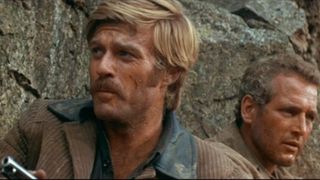
The Screenplay: Novelist William Goldman spent years researching the lives of the titular outlaws but a lack of interest in cowboys led to the project's redevelopment as an original screenplay.
Why It's So Impressive: The perfect Western for people who don’t like Westerns, Goldman approached Butch and Sundance as adventurers and rascals, structuring their story as comedy (even as they face death) and inventing the bromantic buddy movie years ahead of its time.
Most Quotable Line: "Who are those guys?"
The Usual Suspects (1995)
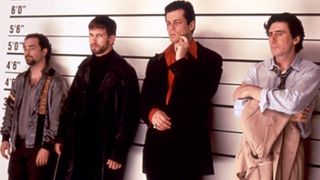
The Screenplay: Christopher McQuarrie and Bryan Singer bolted a line from Casablanca to a poster image of five men in a line-up to inspire McQuarrie's original screenplay about mysterious criminal kingpin Keyser Soze.
Why It's So Impressive: It's one of the most audacious examples of game-playing in cinema, as McQuarrie bamboozles us with a labyrinthine plot and an intricate flashback structure, only to reveal (in modern cinema's most lauded twist ending) he hasn't been telling us the whole story.
Most Quotable Line: "The greatest trick the Devil ever pulled was convincing the world he didn't exist."
Network (1976)
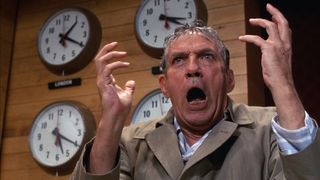
The Screenplay: A real-life on-air suicide prompted Paddy Chayefsky - who had endured years of setbacks during his career as a TV writer - to pen his corrosive insider's portrait of an uncaring, ratings-chasing network.
Why It's So Impressive: At the time, some critics accused Chayefsky's story of being far-fetched. Viewed in retrospect, it's astonishing how well the script foreshadows the age of reality television.
Most Quotable Line: "I’m as mad as hell, and I'm not going to take this anymore!"
Dr Strangelove (1964)
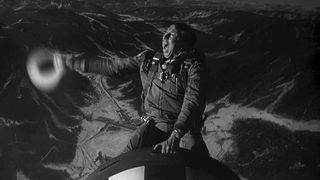
The Screenplay: Stanley Kubrick started out with the intention of making a serious drama based on Peter George's nuclear war thriller Red Alert . Then he decided to play things as comedy, and hired renowned satirist Terry Southern to rework the story.
Why It's So Impressive: A landmark in redefining the parameters of film comedy, Southern spared nobody in his assault on military insanity with an ineffectual President, insane generals and "yee-hawing" bomber pilots. It's scarier for being so funny.
Most Quotable Line: "Gentlemen, you can't fight in here. This is the war room."
The Social Network (2010)
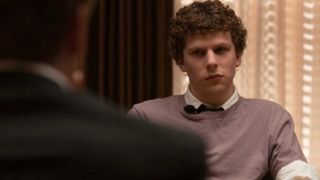
The Screenplay: TV legend Aaron Sorkin brought his rapid-fire geek-speak to bear on the tale of Facebook's founding fathers.
Why It's So Impressive: Sorkin's parallel structure, flashforwarding from exuberant birth to bitter courtroom proceedings, turns events that were only seven years old into a mythic story of ambition and betrayal. With rapid-fire dialogue to die for, of course.
Most Quotable Line: "You have part of my attention - you have the minimum amount."
L.A. Confidential (1997)
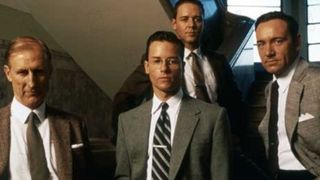
The Screenplay: James Ellroy's labyrinthine thriller about corrupt cops in 1950s L.A. was deemed unadaptable, but Curtis Hanson and Brian Helgeland had a go anyway and won an Oscar for their script.
Why It's So Impressive: Curtis and Helgeland were true to the spirit rather than the letter, chopping whole subplots from the novel and effectively rebuilding the story around Ellroy's incendiary set-pieces. The result streamlines the original but remains ten times more complex than most Hollywood thrillers.
Most Quotable Line: "I admire you as a policeman - particularly your adherence to violence as a necessary adjunct to the job."
Sunset Blvd. (1950)
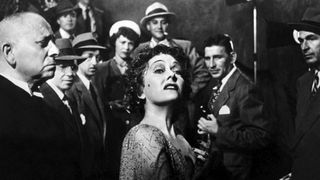
The Screenplay: Billy Wilder and regular writing partner Charles Bracket joined forces with Time film critic D. M. Marshman, Jr to produce a script satirising Hollywood culture and its cult of stardom.
Why It's So Impressive: From the moment you realise the film is narrated by a corpse, it's obvious that this is a deeper, darker take on Tinseltown than the movies were used to. Its cruelty remains undimmed today, notably in the character of fallen star Norma Desmond, reduced to holding funerals for pet monkeys and hiring washed-up screenwriters as gigolos.
Most Quotable Line: "All right, Mr DeMille, I'm ready for my close-up."
Taxi Driver (1976)
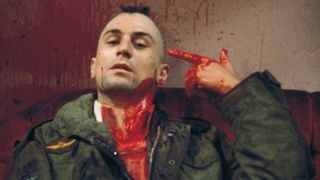
The Screenplay: Upcoming talent Paul Schrader mixed Dostoyevsky, the diaries of wannabe assassin Arthur Bremer and Schrader's own wrecked personal life to tell the story of troubled Vietnam vet turned cabbie Travis Bickle.
Why It's So Impressive: Schrader's method writing produced an unusual, unschooled screenplay rich in psychology and metaphor, notably the brilliant idea of symbolising Travis' alienation by having him watch New York from his lonely front seat.
Most Quotable Line: "All the animals come out at night - whores, skunk pussies, buggers, queens, fairies, dopers, junkies. Sick; venal. Someday a real rain will come and wash all this scum off the streets."
Annie Hall (1977)
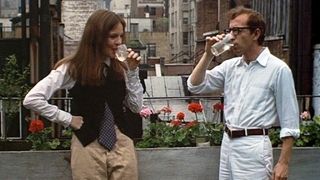
The Screenplay: Woody Allen and Marshall Brickman went through several iterations of their highbrow rom-com, including one version that included a murder subplot and another which would have been a three-hour epic called Anhedonia .
Why It's So Impressive: This is the model case of how a screenplay is only the blueprint, as editor Ralph Rosenblum shaped an innovative, free-association structure based around the script's best scenes. But it all comes down to Allen's growing confidence in creating deeper, more mature comedy while still not stinting on the one-liners.
Most Quotable Line: "Hey, don't knock masturbation. It's sex with someone I love."
All About Eve (1950)
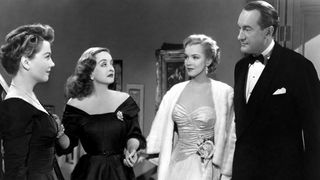
The Screenplay: Veteran screenwriter-turned-director Joseph L. Mankiewicz followed double-Oscar winner A Letter To Three Wives with his backstage drama about an ambitious newcomer's tussle with a fading stage siren, and won another two Oscars.
Why It's So Impressive: Mankiewicz takes every cliché you've ever suspected about actors and magnifies them, to create an acidic story of jealousy and regret driven by some of the cattiest barbs ever brought to the screen.
Most Quotable Line: "Fasten your seatbelts. It's going to be a bumpy night."
